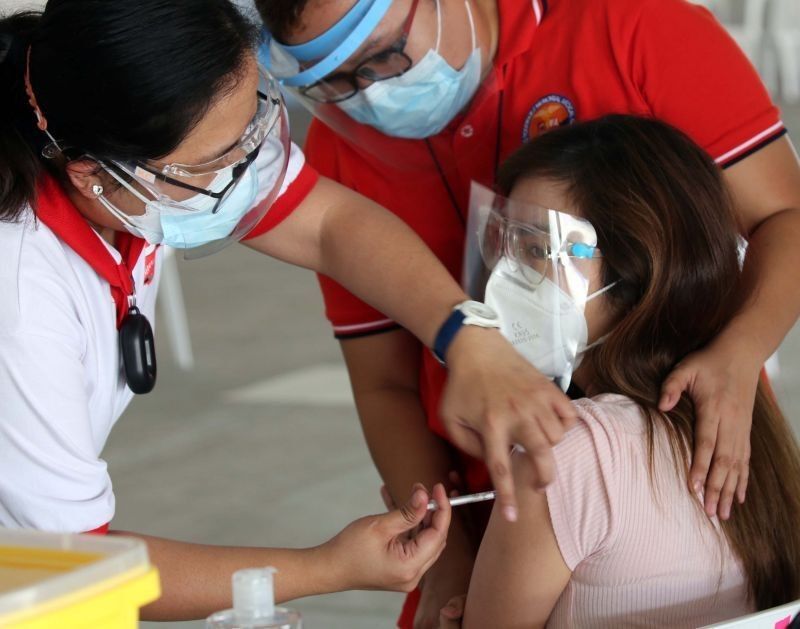WHO: 'Vaccine optimism' seen as a factor in COVID-19 surge in Philippines

MANILA, Philippines — Optimism brought by the launch of the vaccination campaign in the country may have resulted in decreased compliance with health protocols, which contributed to the fresh surge in COVID-19 cases, the World Health Organization said Friday.
The arrival of much needed vaccines even in limited quantity gave rise to the optimism that there is finally light at the end of the tunnel, WHO country representative Rabindra Abeyasinghe said. He said this phenomenon called “vaccine optimism” is one of the drivers of the alarming increase in cases.
“It’s the fact the arrival of the vaccines and the optimism that the vaccine brought have resulted in decreased compliance with the public health measures,” Abeyasinghe said, noting that small changes at the individual level have “opened the room for the virus transmission to increase.”
The country launched its vaccination campaign against COVID-19 on March 1. With the limited supply, only frontline healthcare workers are being prioritized for vaccination using jabs developed by Sinovac Biotech and AstraZeneca. Uniformed personnel are also being given Sinovac shots.
“There was a big focus on planning for vaccine rollout. Maybe, for a few week in that effort, there was not enough attention paid to strengthening the implementation of the minimum public health standards because there was optimism that the vaccines will come,” Abeyasinghe said.
The WHO official said this phenomenon, while still inconclusive, is also happening in other countries that have begun their inoculation campaigns.
The circulation of more transmissible coronavirus variants is also driving the spike in cases, he added.
Health authorities have so far detected coronavirus variants first identified in the United Kingdom (B.1.1.7), South Africa (B.1.351) and Brazil (P.1)—all classified as variants of concern. They also confirmed the detection of P.3, the variant first reported in the Philippines.
‘Faster than last year’
A year into the pandemic, the Philippines is battling another surge in COVID-19 infections, which is feared to strain the country’s health system anew.
The Department of Health reported Friday 7,103 COVID-19 cases—the highest daily tally every—bringing the total caseload to 648,066.
“What is striking is that the speed at which the number of cases has increased also appears to be a little faster than last year,” Abeyasinghe said.
To arrest the spread of the virus, the government is implementing temporary suspension of entry into the country, granular lockdowns in hotspots and curfews. It is also tightening restrictions on non-essential activities and lowering venue capacity.
Abeyasinghe asked the public to continue following health protocols.
“There is a lesson there that even as we roll out vaccines, we cannot afford to ignore the fact that we need to comply with minimum public health standards,” Abeyasinghe said.
- Latest
- Trending

































